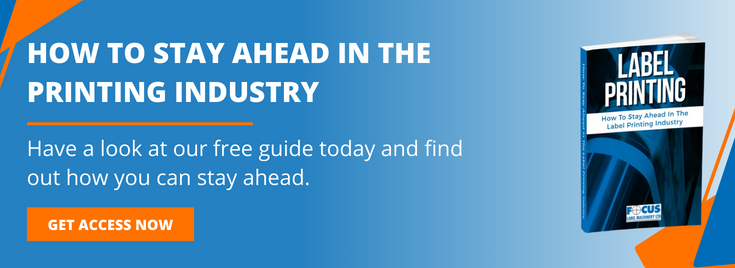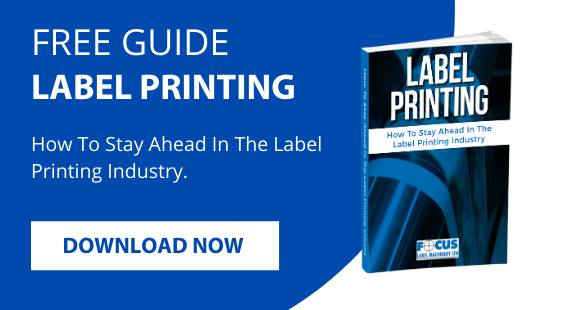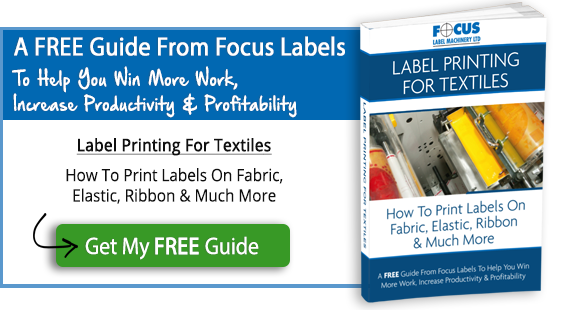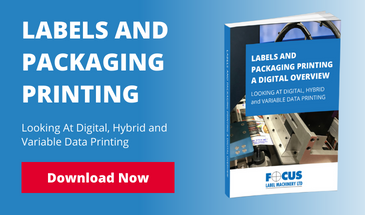
New generations of print hardware and print management software are drastically altering the face of the label printing industry. Some businesses have responded by migrating over to digital printing wholescale, changing their business model to suit the new technology. Others are reluctant to give up the advantages of flexographic printing, especially considering the costs of digital printing.
Digital, Flexo & Hybrid Printing
While digital printing facilitates economic production for smaller print volumes, and variable information options for packaging and label printing; flexo printing is still more cost effective for large quantities or long processing cycles. Digital assets are also more expensive than flexo-presses, although arguably they are cheaper to run as they require less manpower and can turnaround more print runs per shift.
Enter Hybrid printing… Hybrid printing aims to merge the capabilities of analogue and digital printing technology. It does this by integrating the reliability and efficiency of flexographic printing with the creative possibilities of digital printing. From this synthesis, businesses get the high print quality and low cost of flexo printing with the flexibility and fast turnaround time of digital.
The Benefits of Hybrid Printing
To understand how hybrid printing is strengthening the label printing industry, let’s look at how the technology is different from the traditional approach to label printing.
1) Advanced Features - Hybrid printing machines combine a suite of advanced features that enable businesses to customise their print runs. These include:
- Advanced User Interface with touch screen operation
- Remote operation with print settings that can be programmed in advance and activated at the touch of a button
- Mono and four colour options
- The ability to choose web widths
- Inbuilt UV drying system
- Printing and over varnish facilities
- Uni-coloured rotary flexo head to allow pre-coating
- In line systems for converting and finishing
2) Robust Construction - As you can see, some of these features are classic strengths of digital printing, whereas others are more commonly associated with flexo-printing. Hybrid presses have the same robust structure as flexo-presses, capable of integrating a variety of optional features and upgrades within a compact print housing. They are cheap to run and easy to maintain. At the same time, Hybrid presses are fully digital machines – so you can easily integrate them with your IT infrastructure for a seamless transition between design, layout and print.
3) Greater flexibility – Hybrid presses give label printing businesses the ability to cater for a wide range of applications. They have expanded the digital colour gamut to include colours that lie outside the CMYK range. With hybrid printing technology, it is possible to add special inks to the production line or elevating the appearance of a label. Hybrid printing provides the flexibility to convert inline, decorate, and finish a product in a single pass.
4) Ease out complex jobs - Hybrid machines support ‘on the fly’ changes in between complex jobs with full variable data imaging facilities. Production and printing with hybrid technology significantly reduces operational, as well as digital consumable costs. This cost reduction is achieved by facilitating heavy coverage for filling areas with solid colours and digital processing for composite images.
5) Increased productivity - One of the most visible benefits of hybrid technology is increased production speed. Hybrid printing enables more work to be done in a shorter time span. Increased speed is also facilitated by perfect registration from print to cut. Most of the tasks; including labelling, finishing, coating, packaging, and cutting are accomplished automatically. As a result, the staffing cost involved on each print run is substantially reduced. The newer machines are also less time intensive and require fewer skills to operate.
Hybrid machines can also handle more jobs in less time. As a result, you can handle several jobs at the same time and cater to a wider range of customers. This gives you the flexibility to take on a larger number of small print runs, or cut your production costs on large runs.
Investing In New Hybrid Technology
If you want to know more about the benefits of hybrid printing technology, download our new eBook: How To Stay Ahead In The Label Printing Industry. The guide presents a business case for how recent advances in technology actually make it more cost-effective to invest money in new capital assets now, rather than continuing with your older generation presses. Click here to access your copy today.







